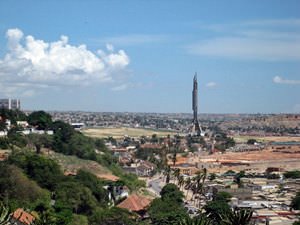 1. In Luanda, they mainly accept the national currency - kwanzaa. The city has many exchange offices, you can change money at hotels and banks, but it is not recommended to exchange it on the local black market.
1. In Luanda, they mainly accept the national currency - kwanzaa. The city has many exchange offices, you can change money at hotels and banks, but it is not recommended to exchange it on the local black market.
2. Local banks and other government agencies close quite early, no later than 4:00 pm. Most banks work on Saturdays, but this working day is shortened.
3. Credit card payment is widely accepted in the capital. Those who're planning to visit local markets and nearby villages should stock up on cash.
4. It is customary to leave a tip only in large restaurants. This rule does not apply to small street cafes and bars. The standard tip amount is 10% of the bill.
6. Tourists who've decided to visit local nature reserves and attractions should go on excursions only accompanied by a guide. The local parks are inhabited by many predatory animals, poisonous insects and plants.
7. At some markets, tourists are offered to buy ivory and ebony products. The sale of such souvenirs is prohibited by law here. There are large fines for their purchase and attempt to export from the country.
Luanda's traditional cuisine will surely appeal to fans of culinary exotics. Here they prepare very original and interesting dishes, similar to which you won't be able to try in other …  Open
Open
9. The most widely spoken language in the city is Portuguese. Only older people speak national dialects. At major hotels and restaurants, the stuff is pretty good at English.
10. In search of interesting memorable souvenirs, it's worth going to city markets. The popular market Benfica specializes in the sale of objects of African art.
11. Due to the prolonged civil war and the recession of the domestic economy, Luanda was recognized as one of the most expensive cities in the world. The cost of basic consumer goods here may be much higher than in many European countries.
12. The main types of public transport in Luanda are buses and minibuses. For safety reasons, foreigners are advised to travel around the city by special tourist buses or use taxi services.
13. You can rent a car, which will be indispensable for active tourists in the capital. When driving, keep in mind that local residents do not care much about traffic rules.
14. The safest place for tourists is the historic district that has formed around the old fort. Nevertheless, it is not recommended to stay here after dark.
15. Luanda has several beaches available for recreation. However, they cannot offer full-fledged equipment. All the necessary accessories for a comfortable rest can be rented at the hotel or a rental point. 


